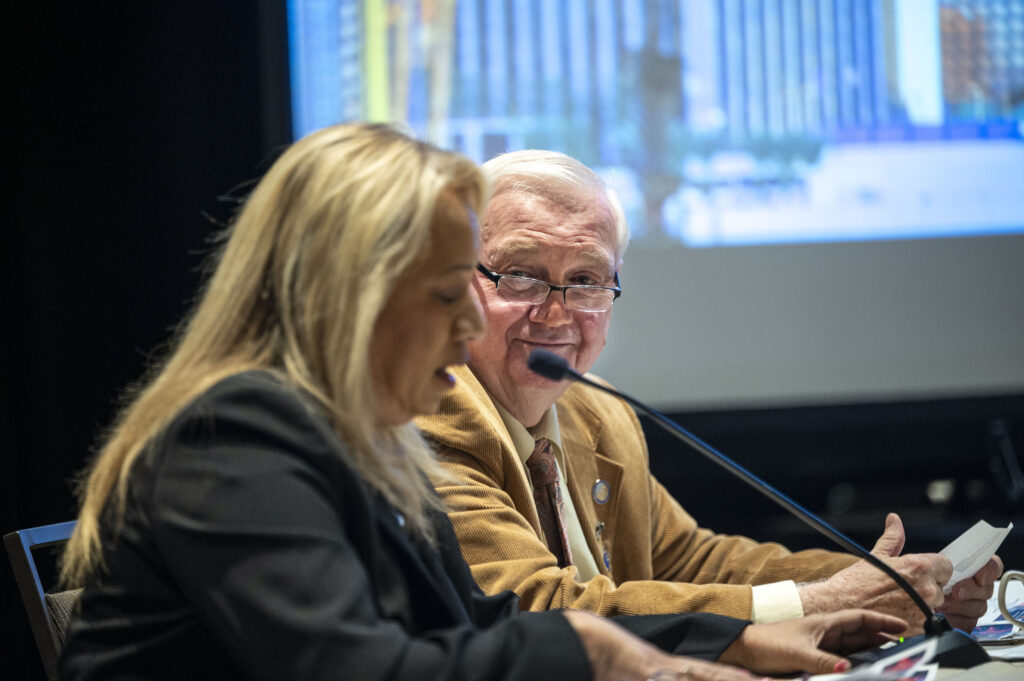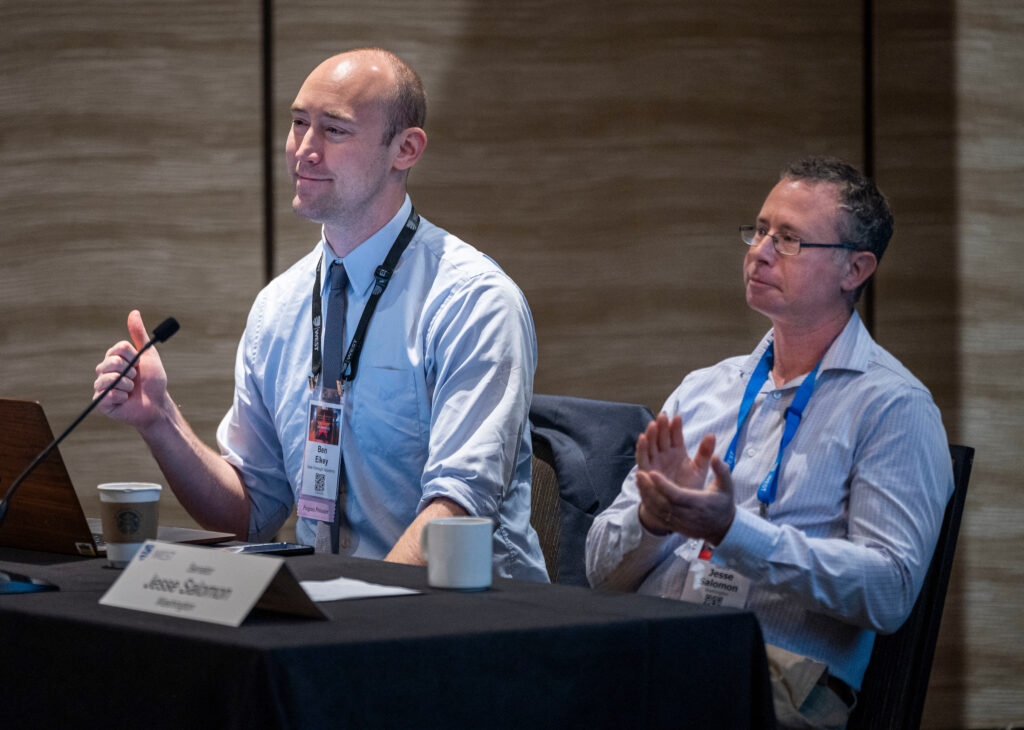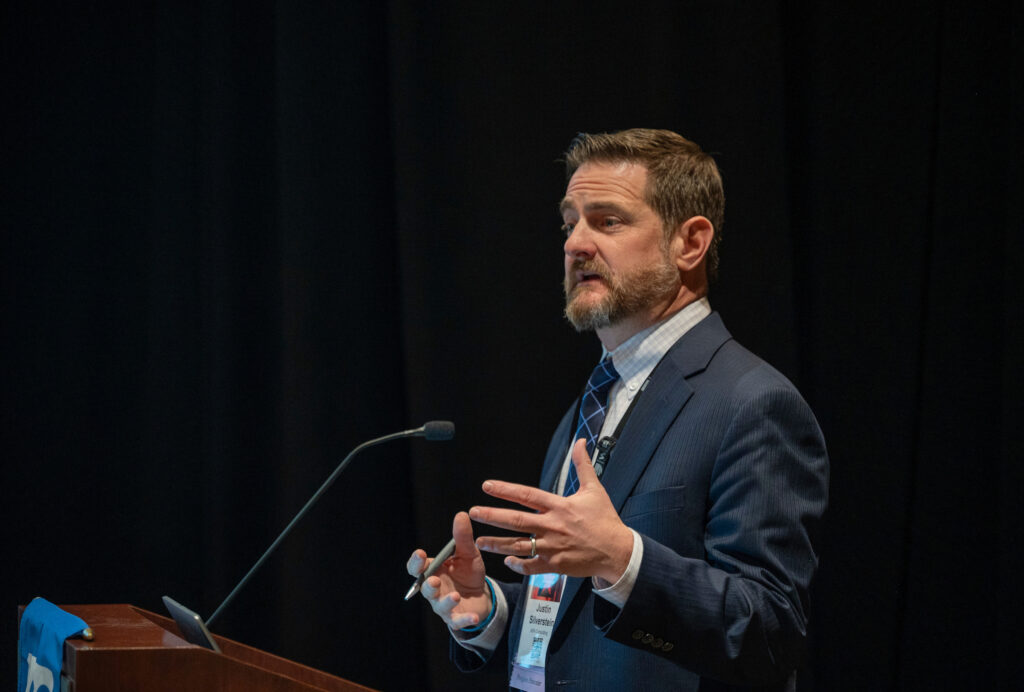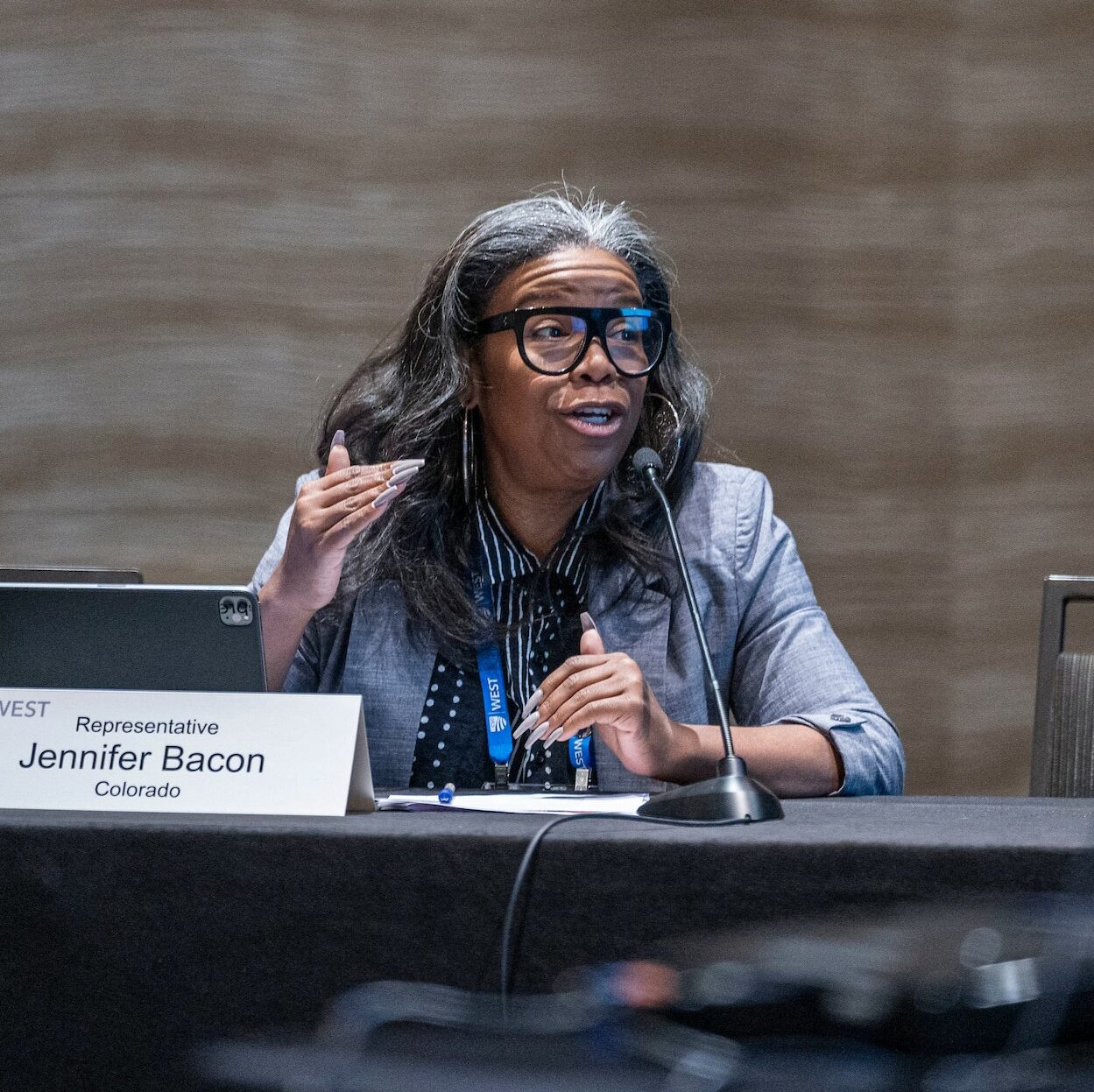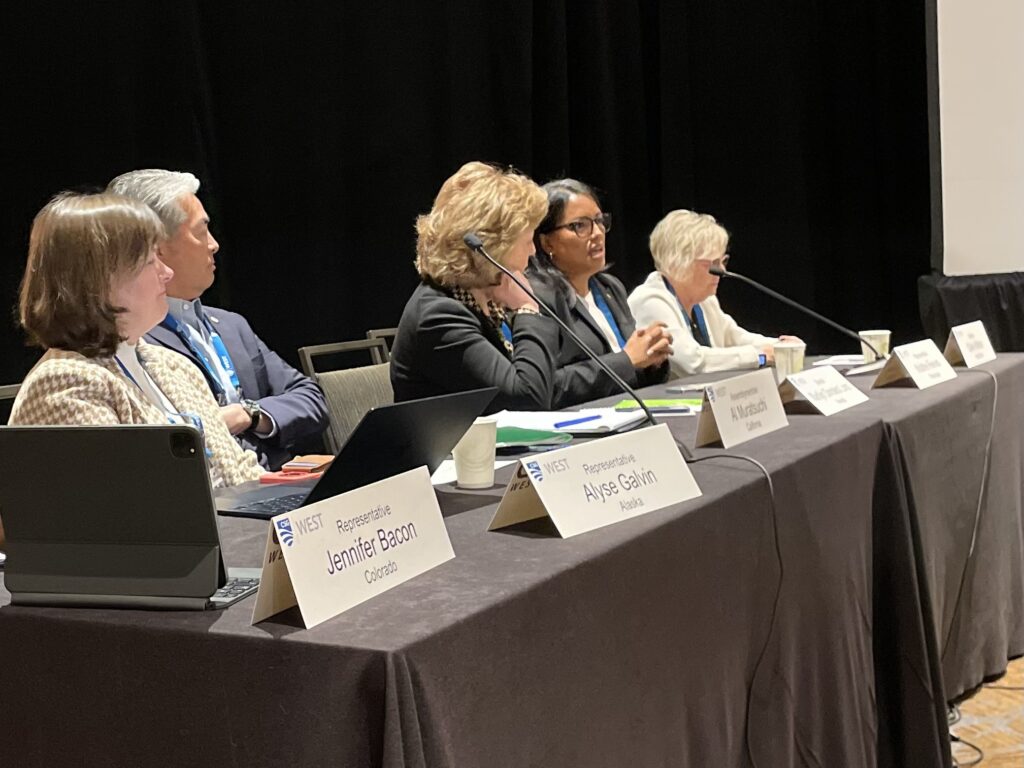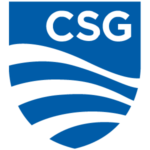Energy & Environment Committee Recap:
The CSG West Energy & Environment Committee, chaired by Senator Eric Barlow (WY) and Representative Nicole Lowen (HI), discussed permitting processes and reform opportunities with committee members. and experts Alex Hergott and Gokce Sencan.
Energy and ecological restoration projects face a lengthy permitting process
Western states seek to adapt to changing climate conditions and expand energy resources while decreasing carbon emissions by:
- Repairing or replacing aging infrastructure
- Greenlighting new projects to expand energy transmission and grid loads
- Accelerating ecological restoration projects that conserve natural resources, sequester carbon, recharge groundwater, ensure healthy watersheds, and mitigate wildfires

Decade-long waits and regulatory and workforce uncertainty require reform
There is broad bipartisan agreement that the permitting process needs reform. However, substantive change needs implementation. Without it, the result is:
- Lengthy permitting–on average, 7 to 10 years
- Projects face a multijurisdictional maze of reviews and approvals/denials
- Regulatory uncertainty as administration turns over
- A lack of experienced permitting workforce at the federal, state, and county level
Federal funding is creating opportunities for change
Funding has increased for projects across the energy, technology, and environmental sectors due to the passage of federal funding bills, including
- Energy Act of 2020
- Use the IT Act of 2020
- Inflation Reduction Act of 2021
- Bipartisan Infrastructure Law of 2022
- Semiconductor (CHIPS) Science Act of 2022
This funding represents the most significant public investment in critical infrastructure – transportation, energy, and water – from the 21st century to the present. Despite funding availability, projects still need permitting delays, and the government alone cannot solve these delays.
The path forward requires alignment and collaboration among agencies
Beyond the permitting process, challenges will require planning, design, and permitting review. Supply chains to be aligned, and a collaborative, rather than adversarial, culture of permitting exists among the various agencies, including:
- Workforce and professional development – recruiting, training, and retaining expert personnel to staff up permitting agencies.
- Improve permitting interagency coordination.
- Implement strategies that align federal, state, tribal, and local permitting timetables and, where possible, reduce duplication.
- Implement transparency and accountability measures to include real-time information on projects in the permitting pipeline and a single state and local point of contact for permitting action.
The post Permitting Reform for Energy and Ecological Restoration Projects appeared first on CSG West.





